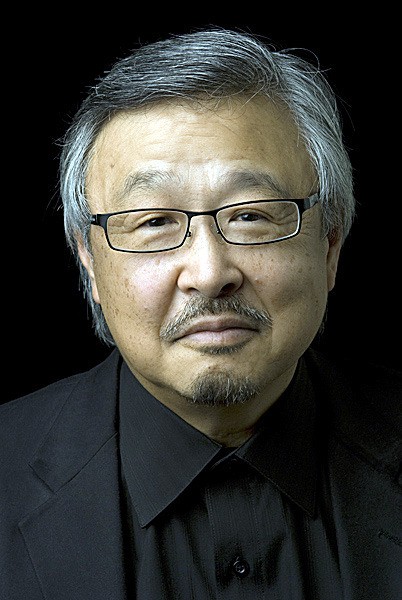On the fateful day of February 19, 1942, Executive Order 9066 changed the lives of Japanese-Americans by opening the doors for deportation to concentration camps. On Wednesday, the Friends of Mukai will present a free reading by two poets, Lonny Kaneko and Larry Matsuda, who were deeply affected by the internment. The reading will be at 7 p.m. Wednesday, April 15, at the Land Trust Building.
Born in Seattle, islander Kaneko’s family lived on Beacon Hill. They were U.S. citizens and in the early days of building a family and settling down. The family had just bought a new car and was about to buy a house when they were deported to Minidoka concentration camp near Sandpoint, Idaho. It was August 1942 and Kaneko was 2 years old. When his family returned to Seattle three years later, their lives never got back on track. The family never spoke of their years imprisoned at Minidoka.
“Families in the internment camps were ashamed,” Kaneko said. “Here we were upstanding citizens, and families did not talk about it. It was forbidden territory.”
The unspoken silence first broke for Kaneko in a poetry class at the University of Washington. An English major, Kaneko took a class from poet Theodore Roethke to fulfill a requirement, never intending to become a poet or delve into taboo history. An assignment from Roethke changed all that.
“It opened up my memory,” Kaneko recalled. “I had subdued anger and decided I needed to turn that around as it was part of my life.”
Kaneko began writing poetry. In the 1980s, after talking with Japanese-American students who were unaware of the internment, Kaneko wrote poems about his experience and published “Coming Home From Camp,” a collection of poetry about life during and after the war.
The book is being re-released as “Coming Home From Camp and Other Poems,” by Endicott and Hughes Books, the publishing company owned by islander Jeanie Okimoto. When the event for Friends of Mukai started taking shape, Okimoto decided to republish the out-of-print book. The book will be for sale on Wednesday, and proceeds will benefit the Friends of Mukai.
Larry Matsuda was born in Minidoka. He talks about borrowed memories, those he routinely heard only during family gatherings in the years following the internment.
“The talk, the memories always came up,” he said, “and they became a part of me.”
For Matsuda, they also became fuel for two books of poetry, “A Cold Wind from Idaho” released in 2010, and a recent collaboration with artist Roger Shimomura, “Glimpses of a Forever Foreigner.”
Matsuda spoke of the shame Japanese-Americans carry for being singled out in World War II.
“What do you do when the whole community is shamed?” he said. “Prove loyalty by joining the army? Hold it inside or commit suicide?”
He explained that shame carries great weight in Japanese culture, and so it was not discussed.
“My poetry brings this up,” Matsuda said. “One person told me she had not cried for 60 years until she heard one of my poems. We are not culturally built to demonstrate and express our feelings.”
Yet Matsuda is committed to bringing this painful part of U.S. history out of the shadows because, he said, it is an American story. Citing letters of apologies for “race discrimination, war hysteria and a failure of political leadership” from Presidents Reagan, Bush and Clinton to Japanese-Americans, Matsuda believes the value of remembering what happened is to make sure it never happens again. Like Mark Twain said, history doesn’t repeat itself, but it rhymes.
“It won’t happen to the Japanese again,” he said, “but there are others who it will happen to. Once I tell my story the audience will share in it. It can’t be ignored.”
Joe Okimoto will host the presentation on Wednesday, which will begin with a short video with background footage about the internment, followed by readings from Kaneko and Matsuda.



